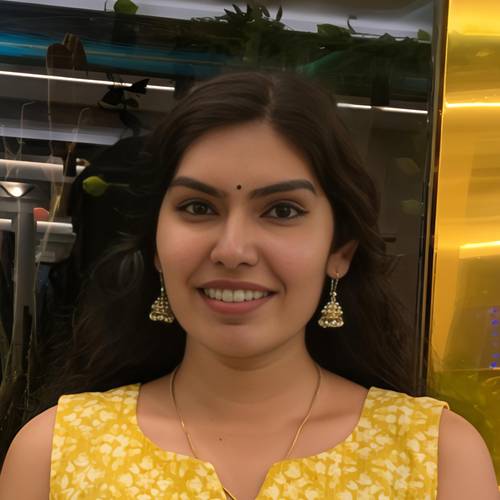Baseline Estimation in Raman Spectroscopy
Presented by:
Gopika Krishna Omanakuttan Sini, Vellore Institute of TechnologyDespite the molecular and chemical information Raman signals can provide, they are weak, hindering their identification and quantification by spectral analysis methods due to inherent artifacts such as noise and baseline distortion. The weak Raman peaks are prone to suppression in the face of stronger fluorescence signals, whereas strong Raman peaks will be distorted. This is because the background baseline intensity is similar to or higher than the pure spectral signal intensity, as the baseline is not horizontal, but rather changes constantly.
This challenge is crucial in biomedical and life science applications, where Raman spectroscopy is used for providing insights into metabolism and disease progression in cancer, neurodegenerative diseases, changes in biofluids, studying drug responses in tissues etc. The accuracy of these applications strongly depends on the reliability of peak identification and quantification. Thus, the elimination of the baseline distortion has a major role in preprocessing as it aids in obtaining a deeper insight into the Raman peaks. This review gives an overview of the existing baseline correction techniques, which are categorised as manual, semi-automated and fully automated, and their principles, significance and limitations. The comparative evaluation of these methods performed in Raman spectra collected from senescing leaf samples, to illustrate the practical differences in baseline fitting performance, peak preservation, and noise suppression, is discussed.
About the presenter
Gopika Krishna Omanakuttan Sini is currently a full-time Ph.D. scholar under the guidance of Sandeep Chakraborty, Ph.D., in the research group ‘ECO-BIONICS’, Department of Physics, School of Advanced Sciences, Vellore Institute of Technology (VIT), India. She received her bachelor’s degree in physics from HHMSPB NSS College for Women, University of Kerala, India, in 2020, and her master’s degree in physics with a specialization in electronics from Mahatma Gandhi College, University of Kerala, India, in 2022.
Her research interests are primarily centered on spectroscopy, microscopy, medical imaging, and artificial intelligence, with a particular emphasis on their application in clinical diagnostics and the development of point-of-care diagnostic devices. She is currently working on AI-assisted Raman spectroscopy for biomedical studies.